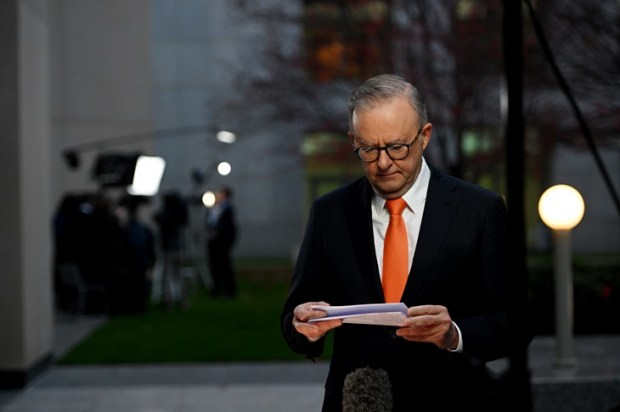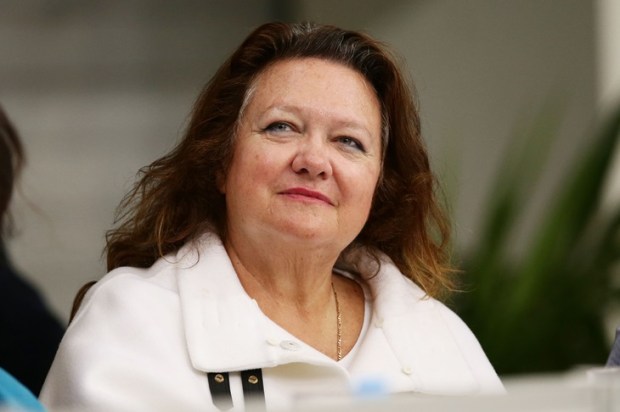Last week, it was reported that the pianist Jayson Gillham had, in light of what I term the Gillham Affair, filed proceedings against the Melbourne Symphony Orchestra (MSO) in the Federal Court of Australia. Gillham argues that the MSO has allegedly discriminated against him based on his political beliefs, violating his human and workplace rights as defined by Equal Opportunity Act 2010 (Vic) and Fair Work Act 2009 (Cth). I have written extensively on the Gillam Affair in Quadrant and Sky News Australia and have now prepared this open letter to Gillham.
Dear Mr Gillham,
I have recently read of your legal manoeuvres against the Melbourne Symphony Orchestra (MSO) after following your present situation closely.
You say you were ‘silenced for speaking the truth’ and that the ‘MSO’s extreme reaction to factual statements highlights a disturbing trend of silencing voices that speak to uncomfortable truths’. You say that ‘this battle is about ensuring that artists can perform with integrity and without fear of censorship or reprisal’ and that ‘everyone’s right to express opinions on important issues without being silenced’ should be defended.
Mr Gillham, I wonder what you think, then, of my own bizarre situation.
In 2022, within this same publication, I co-authored an article in which I openly stated that I was a proud monarchist. Later, it came to light that I was a member of the Liberal Party. I actively campaigned against the Voice to Parliament and have offered conservative commentary on a variety of political and cultural issues – just as you offer commentary, albeit of a competing flavour, on matters removed from your day-to-day operations as a pianist.
Whereas it seems your schedule of concerts has not been affected by your outspoken behaviours, it is the case that since 2022 my music, for the most part, has only been performed at the occasional Anglican church service.
I have been subject to, as you say you have, the ‘disturbing trend of silencing voices that speak to uncomfortable truths’. Certainly, just like you, I hold that my perspectives are truthful.
When I undertook one compositional program in 2022, I voiced my opposition to high-profile Australian concert hall composers covertly employing orchestrators to finish, or even begin, their scores. (You will, I am sure, agree with me that this fraudulent conduct must cease if we are to unlock the very best future for Australian composition.) The artistic director of that program responded to my opposition thus: ‘You are white and privileged. You wouldn’t understand.’
In your opinion, does that comment constitute direct discrimination, violating the human and workplace rights protected by Fair Work Act 2009 (Cth)?
When ABC Classic’s presenter, during a 2021 episode of Spicks and Specks, described the category of composers that I belong to as ‘stale, pale males’, should I feel discriminated against? When a former conservatorium professor said to me, ‘Men have had their time…’ should I be disheartened?
When I wrote a work entitled Bush-Bash – as in, to quote the Oxford definition, ‘make one’s way through wild countryside where there are no formed roads or tracks’ – was my artistic freedom protected when I was told that if I did not change the work’s title (because, supposedly, bush-bash is a ‘racially insensitive’ colloquialism), my contract would be terminated? Should I feel discriminated against or insulted that from this episode I was required to undertake Reconciliation Action training?
My experiences – and they are not exhaustively listed – are not unique. Because I have, exercising my own free speech, spoken openly of them, many other composers and artists who hold conservative or non-conformist perspectives have reported their own discrimination to me.
I suspect there is much that you and I would disagree on. But is it not evident, based upon our shared experiences, that within Australia’s legacy cultural infrastructure there exists repression, itself ideologically motivated, and that this repression is limiting opportunities for authentic artists, of all political persuasions, and their quality artworks? And is it not the case that both someone of your beliefs and someone of mine, if of sound artistic merit, should be able to equally share the stage, side by side, bound together by the overwhelming power that is music?
You have now garnered a prominent public profile for yourself. If you so choose, you are positioned to launch a kind of classical class action: a campaign demanding that our modern world recognise all artists upon not their beliefs or identities but their abilities, and a campaign asserting the primacy of universal artistic freedom. Were you to make that your ultimate objective, the queue of supporters at your door would be endless.
Should it come to pass that the Gillham Affair represents little more than some Israel-versus-Palestine brawl, an immense opportunity to reform music, art, and culture for the better will have been squandered.
I hope and pray that, beyond your imminent legal action, you conceive of the broader struggle at hand and elect to advocate for a truly egalitarian solution. As you are now Scotland-bound, following your appointment to the Royal Conservatoire, I urge you to consider these words, in their supreme sense, penned by Sir James MacMillan:
A few weeks ago, a new organisation was formed – Freedom in the Arts – which warned that artistic free expression is under attack. Its launching letter to the press (which I signed along with more than 1,000 others) spoke of ‘a new set of moralistic and political attitudes which many institutions and activist groups have adopted as dogma’. A lot of these complex and contested issues – some of which I don’t fully understand yet – seem to revolve around race and sex, and the new body is worried that a large number of arts institutions are discriminating against artists and audiences who do not subscribe to their views.
Yours sincerely, Alexander.
Alexander Voltz is a composer and Quadrant’s founding Music Editor. Last month, he won the Symphonic Category of the 19th George Enescu International Competition, an initiative of Romania’s George Enescu Festival, with his twenty-minute orchestral work, ‘Dunrossil Elms’.

























